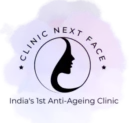Skin Pigmentation : Causes, Symptoms And Solutions
Table of Contents
ToggleA large sample study across four Indian cities revealed that more than 80% of the population present skin color heterogeneity on the face, irrespective of age and gender.
Highlights
- Skin pigmentation is the normal darkening of skin or dark patches on the face and body.
- Both internal (genetic) and external factors cause skin pigmentation. It is more common in women than men.
- Pigmentation can occur on skins of all colors.
- Pigmentation is mostly seen in Asians or people living around equatorial areas as sun exposure is a key cause of this skin disorder.
- It is more common in middle-aged people as a certain type of pigmentation intensifies with aging.
What is Pigmentation?
The usual color of your skin, mucous membranes, hair, and eye retina is caused by the pigment and melanin deposition produced by specialized cells, known as melanocytes. The excessive production of melanin (hyperpigmentation) causes dark spots, patches, and discoloration of your skin. Too much melanin production can change your skin color and cause uneven tone.
As hyperpigmentation tends to affect patches, your skin looks darker in certain parts. The darker areas differ in size and appear on any of your body parts. At Clinic Next Face, the dermatologist can identify the causes of your pigmentation.
What Causes Skin Pigmentation?
Increased production of melanin due to certain internal or external factors can lead to the disorders of skin pigmentation.
Excessive melanin production because of some internal and external factors can cause skin pigmentation. Here are the common causes of skin pigmentation:
Internal Factors
Hormonal Changes
- Disease or Illness- Medical conditions, such as Addison’s disease and endocrine diseases disrupt your hormonal level and boost melanin production.
- Hereditary Factors – Hereditary factors cause skin pigmentation. Lentigines are a kind of pigmentary condition related to hereditary multisystemic syndromes.
- External Factors
- Sun Exposure – Sun exposure causes pigmentation, mainly by its UVA rays that penetrate deep inside your skin and produce excess melanin.
- Injury – External injuries, such as a cut, bruises, pimples, poor hair removal, and depilatory creams can invoke an inflammatory reaction to the injury and start producing extra melanin.
- Medication – Certain medications may cause unwanted pigmentation as a side effect. It is commonly seen with chemotherapy and tetracycline antibiotics.
- Allergies – Your skin may develop pigmentation if it gets close to cosmetics, and hair dyes.
Pigmentation Symptoms
You can see pigmentation on your skin in the form of patches that vary in size and shape. They appear in any body part and differ according to the type of hyperpigmentation. The common symptoms of hyperpigmentation are dark-colored sunspots on the skin, pigmentation patches, skin discoloration post-inflammation, and raised dark patches.
Here are the common types of skin pigmentation:
Sunspots Sunspots, also known as ” solar lentigines” are pigmentation spots with clearly defined edges. They form on your skin due to sun exposure. The level of pigmentation depends on the exposure of melanin pigment to harmful UV rays.
Melasma
Melasma is a kind of facial pigmentation, which affects the deeper layers of your skin. It appears in women mostly as irregular gray and brown patches on your nose, cheeks, and jawline.
Freckles
Freckles are a type of skin pigmentation that tends to occur because of your skin’s consistent exposure to sunlight. They look like mini circular spots with exposed body parts, like the face, and affect people with lighter skin tones. Hereditary factors may also cause freckles on your face.
Post-inflammatory Pigmentation
Your skin develops post-inflammatory pigmentation when it responds to injuries, such as burns, bruises, friction, and harsh chemical treatments. It can also occur after acne breakouts and leave black, brown, or reddish marks on your skin.
Diagnosis
Our dermatologist can diagnose your pigmentation and recommend the right treatment suited to your condition. Clinic Next Face initiates treatment with a visible examination, derma scan analysis, or a dark patch biopsy. We will review your medical and family records and then perform a skin examination to identify the factors causing pigmentation.
Once the examination is done, our dermatologist suggests topical medication and advanced dermatological procedures to treat your pigmentation.
Are You At Risk?
Even though pigmentation is not that common in Asians, you are at its risk regardless of your skin type, age, gender, or geographical location. Most times, pigmentation is caused by sun exposure. Exposing your skin to the sun even for a day can damage its surface. You are more prone to pigmentation if you have hereditary records. Thus, quick and on-time diagnosis helps to reverse the condition.
Prevention and Management
Here are the prevention and management measures you can for pigmentation:
- Apply a broad-spectrum sunscreen with the highest SPF to protect your skin from both UVA and UVB sun rays.
- Follow a proper skincare routine to protect your skin from dirt, pollutants, and environmental damage.
- Wear hats to avoid exposing your face to the sun during peak hours of sunlight.
Home Remedies
Home remedies may not be effective to prevent and cure pigmentation. Plus, they irritate your skin and extend the course of treatment. Medical intervention is necessary to implement the most effective treatment options for pigmentation issues.
Treatment Options
- Topical medication
- Chemical Peels
- Laser therapy with Q-switched NdYAG lasers
Prognosis
Skin pigmentation may not be a critical health issue but can intensify if you don’t treat it quickly. Your acne marks, sunspots, and dark spots may fade with topical treatment. However, intense discoloration needs advanced treatment processes, like laser therapy. Our dermatologist can identify the level of your pigmentation and suggest the treatment that delivers the desired results.
Clinic Next Face aims to redefine skincare quality and deliver advanced dermatology solutions.
Talk To Our Pigmentation Expert Today!
No Obligations! Just jump on a quick call with our pigmentation expert and know what kind of treatment will suit you the best.
Either way you will get some actionable tips to reach your skin goals faster.







